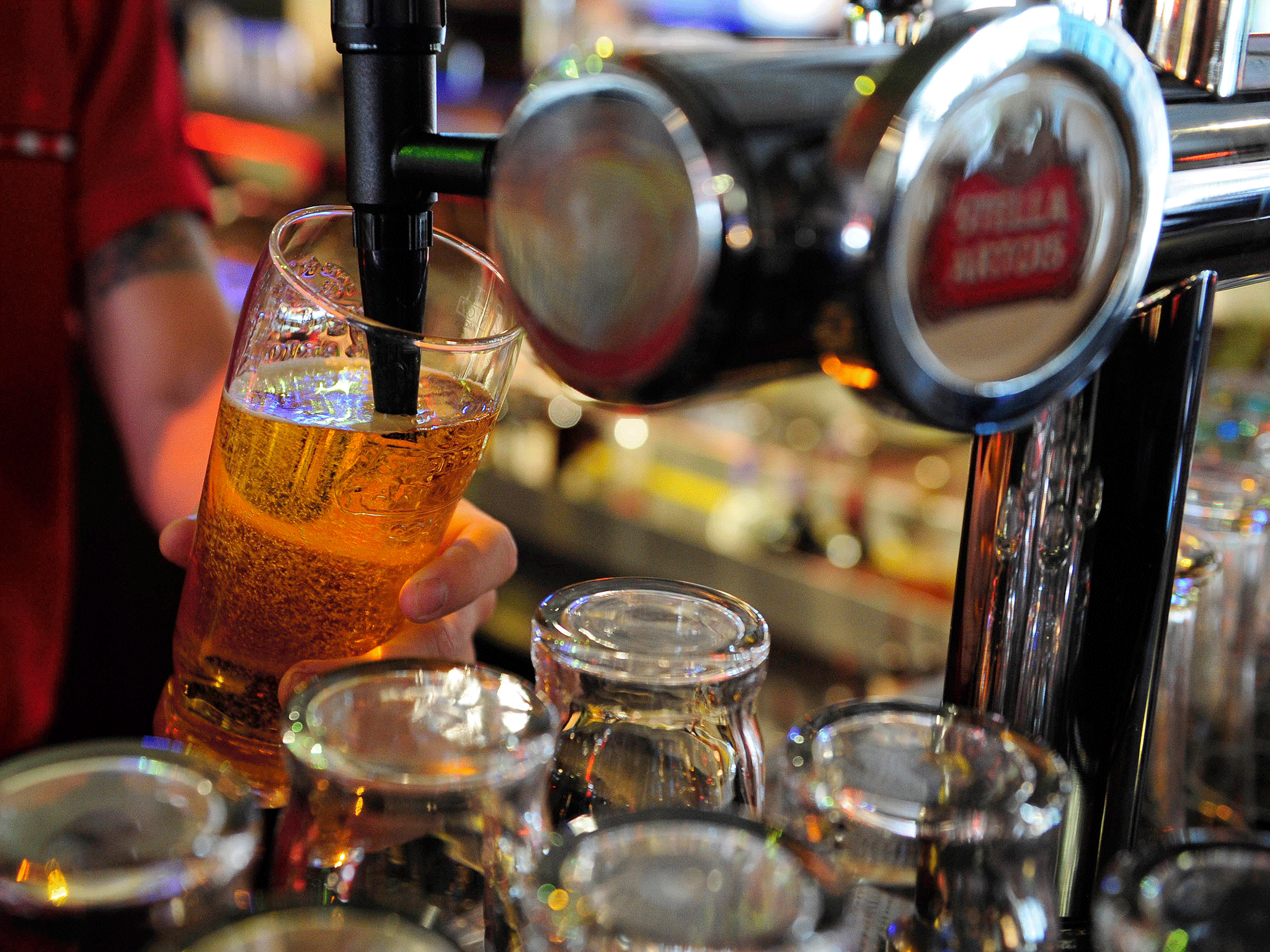'I needed that money to survive': Women reveal stress of losing hospitality jobs as female-dominated sector forecasts fresh job losses
‘Now I’m on universal credit. It’s a little bit over half of what I’m used to from working full-time. I need new winter clothes but I can’t afford them. I don’t have any spare money but I have a lot of spare time,’ says young woman

“It could have led to homelessness,” Alex Marie Russell, who worked in a hospitality role at a cinema in Sheffield, told The Independent. “It’s put a lot more stress on me. Sleeping has been very difficult. I’ve had a lot more downer days than usual.”
The 22-year-old, who did Film Studies at Sheffield Hallam, said she found it difficult to get by after her employer refused to give her any wages provided by the government’s furlough scheme.
“I was there for about five weeks and then Covid happened and I got a phone call saying they had to lay me off because I hadn’t been working there for long enough,” she adds. “It was pretty heartbreaking. I had to go back to my home town and move back in with my mum as I couldn’t afford rent, bills, or electrics.”
Ms Russell said it was incredibly hard to focus at university - which she doing remotely online from her mother’s house - in the wake of financial pressures unleashed by the pandemic.
“I come from a working-class background and it was the first time I’ve been unemployed,” she adds. “I didn’t know what to do with my time. My mum is a single parent with three of her own kids and one foster child. I needed that money to survive. Also, I’m asthmatic so I was high risk.”
She said it difficult to adapt to doing her university work in new surroundings where she was suddenly surrounded by young kids - adding that she was juggling everything with homeschooling her foster brother.
Ms Russell recently moved back to Sheffield to start her master's degree but 20 days before it was due to begin, she was told it had been unexpectedly moved to January.
“I paid six months of rent for no reason,” she says. “More stress. This year’s been really stressful. I’ve been job hunting as that’s all I can do right now.”
Her comments come as rising numbers of hospitality jobs lie at risk as more parts of the UK implement stricter lockdown measures in a bid to contain the spread of coronavirus.
The hospitality industry's trade body said tougher Tier 2 Covid rules which have been rolled out on Thursday - which bar households from mixing indoors in pubs and restaurants from Saturday - will put up to 250,000 jobs at risk in London's hospitality sector.
It comes after Kate Nicholls, chief executive of UK Hospitality, recently warned there are likely to be more than half a million job losses in the UK’s hospitality sector after the government’s furlough scheme comes to an end this month.
Dr Mary-Ann Stephenson, director of Women's Budget Group, told The Independent: “It is not clear exactly how many of the job losses will be women. But given women are over-represented in the hospitality sector, they are at greater risk of losing jobs.
“People who lose their jobs who are forced into universal credit will see the amount of money they get each month drastically reduced. The risk of people being pushed into poverty is very high. We have one of the least generous social security systems in Europe. The ratio of social security to wages is the lowest it has ever been.”
A report by the University of Exeter released in July found women are almost twice as likely as men to have lost their job during the pandemic. Researchers found seven per cent of women have been made redundant during the lockdown in comparison to four per cent of men.
While a new study by the University of Warwick and the University of Nottingham which came out this week found working-class women are disproportionately furloughed compared to men and other women.
Ella Cook, who lives in Glasgow, told The Independent she has been left struggling to afford to live after losing her job in a restaurant in the Scottish city.
The 25-year-old, who finished a masters at Glasgow University just before she started working there in October last year, was furloughed in March in the wake of the coronavirus pandemic.
She said: “I was furloughed until July and then at the start of July, some people started going back to work. But I got taken off furlough in July even though they could've kept me on the books easily. I just got a very abrupt email with a couple of lines telling me not to come in.
“They told us a few weeks before that we’d all have an individual meeting with an external person to find out what our job entails but then I never got that. I was very hurt and stressed. I was confused. I just felt so dropped. It wasn’t my dream job but it was the only thing which made lockdown not so stressful as I could pay rent week for week.
“Now I’m on universal credit. It’s a little bit over half of what I’m used to from working full-time. I need new winter clothes but I can’t afford them. I don’t have any spare money but I have a lot of spare time.”
Ms Cook said she could no longer afford a meal out - adding that she had to practically beg her employer to pay her the money they owed her so she could pay her rent when they laid her off.
She said she was never given a specific reason for why she was made redundant despite ringing them up to ask.
“I felt very dismissed,” Ms Cook added. “If I was a man, they would’ve given me answers. Women are hit worse all the time. Sleeping and eating is very stressful. It is hard to stick to a normal routine when you are worrying when you are next going to get paid. At first, I was panicking about finding work and then it became obvious there weren’t many jobs out there. I am worried about getting another job in hospitality given the government’s ever-changing coronavirus restrictions.”
Pub group Marston's announced it would axe up to 2,150 furloughed jobs on Thursday in the wake of fresh rules to curb Covid-19 spreading - warning the 10pm curfew and table-only service had damaged business.
Researchers have routinely warned women are more likely than men to lose their jobs in the coronavirus recession because a greater proportion work in sectors - hospitality, leisure, tourism and the arts - which are forecast to be most badly affected.
Join our commenting forum
Join thought-provoking conversations, follow other Independent readers and see their replies
Comments


Bookmark popover
Removed from bookmarks